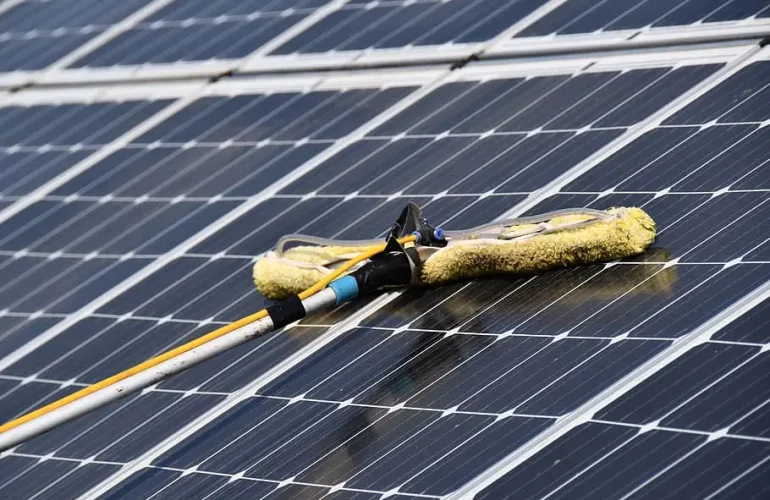The Efficiency of Solar Panels on Cloudy Days: Debunking Myths
Easy Power understands the value of clear, dependable information when making solar energy decisions, particularly in regions like Kabale where sunlight is not always abundant. In this post, we address common myths regarding solar panel efficiency on overcast days and explain why solar energy is still a viable and sustainable alternative regardless of weather.
Understanding Solar Panel Efficiency
Solar panels work by turning sunlight into electricity using the photovoltaic effect. However, it is widely assumed that solar panels are only efficient on sunny days when the sky is clear. This fallacy frequently causes people to question the practicality of solar energy in foggy climates.
Busting the Myth of Cloudy Day Inefficiency
Despite what is commonly believed, solar panels are still capable of producing electricity on overcast days. Even while they might not generate as much energy in direct sunshine, they can still collect diffuse sunlight and transform it into useful electricity.
How Cloud Cover Affects Solar Panel Performance
The amount of sunshine that reaches the solar panels is reduced by cloud cover, which lowers the amount of energy produced. Modern solar panels, on the other hand, are made to function well in low light.
The Role of Diffuse Radiation Toward Solar Panels
Diffuse radiation, or sunlight diffused by clouds and air particles, can be captured by solar panels even on gloomy days. While diffuse radiation permits solar panels to continue producing electricity, albeit at a slower rate, direct sunlight yields the most energy output.
Overcast Doesn't Mean Ineffective
It’s crucial to realize that even on cloudy days, solar panels can still generate electricity. Even though the amount of energy they produce varies based on climatic conditions and cloud cover, they are nevertheless a dependable renewable energy source all year round.
Maximizing Solar Panel Performance in Cloudy Climates
While solar panels can function effectively in cloudy climates, there are steps you can take to maximize their performance:
Optimal Panel Placement: Position solar panels in locations with maximum exposure to sunlight, taking into account factors such as shading from nearby structures or trees.
Invest in High-Quality Panels: Choose solar panels with high efficiency ratings and advanced technology designed to perform well in low light conditions.
Regular Maintenance: Keep solar panels clean and free of debris to ensure maximum sunlight absorption.
Frequently Asked Questions (FAQs)
- Yes, with the right system size and direction, solar energy can still be effective in rainy conditions.
- Rain can help remove dust from solar panels, which could increase their efficiency.
- Putting in batteries allows you to store extra solar energy for use later on.
- Using solar batteries allows you to store extra energy during the day for usage at night.
- Systems that are connected to a grid can use the utility to get electricity at night.
- For off-grid standalone solutions, batteries or generators are needed.
Solar panels produce no electricity at night without sunlight.
On very overcast days, a solar array’s efficiency may drop to 10-25% of its peak capacity, according to NREL data.
On partly cloudy days, efficiency ranges from 50-80%
Bottom line: When does solar work best?
Even on cloudy days, solar panels can still produce significant amounts of electricity from diffuse ambient light, even if their efficiency may decrease.
Even in cloudy climates, solar electricity can be a wise investment with the right system size and orientation.
When your solar panels are exposed to direct sunlight during peak daylight hours, they will generate the most energy; nevertheless, even on gloomy days, they can compensate for a sizable amount of your electricity use.
Furthermore, incorporating solar batteries into your setup guarantees that you’ll have electricity even in case of unforeseen weather.
Conclusion
In conclusion, it’s a popular myth that solar panels don’t work on cloudy days. Solar panels can still produce electricity even in cloudy conditions, so they remain a practical choice for sustainable energy production in places like Uganda. Regardless of the weather, people and companies can harness the power of solar energy by knowing the elements that affect solar panel performance and taking the necessary actions.
At Easy Power, we’re dedicated to giving you accurate information and trustworthy solutions so you can make wise choices regarding solar energy. Reach out to us right now to find out more about the advantages solar energy can offer your neighborhood.



